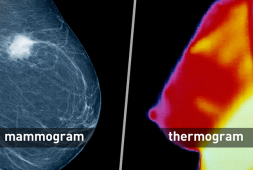
Regular health checkups play a crucial role in monitoring vital heart health indicators such as blood pressure and cholesterol levels. The adoption of a heart-healthy lifestyle, characterized by a nutritious diet and consistent physical activity, can significantly reduce the associated risks.
A recent study has indicated a potential link between an early diagnosis of heart disease, particularly in individuals reaching early middle age, and an increased likelihood of developing dementia later in life. The research involved an in-depth analysis of medical data from over 432,000 adults without dementia, with an average age of 57, including over 50,000 individuals with a history of heart disease. Over a follow-up period of approximately 13 years, 5,876 participants were diagnosed with dementia, encompassing 2,540 cases of Alzheimer’s disease and 1,220 cases of vascular dementia— a form of memory loss associated with compromised blood flow to the brain.
The findings revealed a noteworthy association between heart disease and dementia. Overall, individuals with heart disease were found to be 36 percent more likely to develop dementia, 13 percent more prone to Alzheimer’s disease, and 78 percent more susceptible to vascular dementia, as reported in the Journal of the American Heart Association.
Furthermore, those diagnosed with heart disease before the age of 45 faced the highest risk. They exhibited a 71 percent higher likelihood of developing dementia, a 75 percent increased risk of Alzheimer’s disease, and a 65 percent elevated risk of vascular dementia. These results underscore the importance of addressing heart health early on, not only for cardiovascular well-being but also for mitigating the potential risk of cognitive decline and dementia in the later stages of life. Therefore, a holistic approach that combines regular health checkups, lifestyle modifications, and early intervention can contribute significantly to overall health and well-being.
All About Premature Coronary Heart Disease
“This shows the huge detrimental influence of premature coronary heart disease onset on brain health,” said senior study author Fanfan Zheng, PhD, a researcher at the Chinese Academy of Medical Sciences and Peking Union Medical College in Beijing.
“Coronary heart disease has previously been associated with dementia risk in older adults,” Dr. Zheng also said. “However, this is believed to be the first large-scale study examining whether the age of coronary heart disease onset may impact the risk of developing dementia later in life.”
The primary objective of the study was not to establish a conclusive link between heart disease and its potential impact on brain health or the development of dementia. Nonetheless, Andrew Budson, MD, who is a coauthor of “Seven Steps to Managing Your Aging Memory,” as well as the chief of cognitive behavioral neurology at VA Boston Healthcare System and a professor of neurology at Boston University, suggests that atherosclerosis could play a significant role. Atherosclerosis, characterized by the buildup of fats and cholesterol in artery walls, gradually diminishes blood flow over time. Dr. Budson hints at the possibility that this vascular condition may be a contributing factor to the observed effects on cognitive health.
“The same processes that lead to coronary heart disease — atherosclerosis building up and narrowing blood vessels to the heart — can lead to cerebrovascular disease, that is, atherosclerosis building up and narrowing blood vessels to the brain,” Dr. Budson said. It must be noted that he wasn’t involved in the new study.
Factors That May Affect Brain Health
Various factors that elevate the likelihood of heart disease, such as smoking, high blood pressure, elevated cholesterol levels, and diabetes, can adversely affect brain health, according to Budson. Heart disease, in addition to compromising the regular heart rhythm, can result in the accumulation of blood in areas of the heart that are not pumping efficiently. This condition can lead to a diminished blood flow to the brain and increase the risk of strokes, both of which contribute to the development of dementia.
The encouraging news is that individuals do have the opportunity to mitigate their risk of heart disease in their younger years and consequently decrease the likelihood of developing dementia as they age, as emphasized by Nada El Husseini, MD, an associate professor of neurology at Duke University. The adoption of lifestyle habits such as maintaining a heart-healthy diet, engaging in regular exercise, and ensuring adequate sleep not only diminishes the risk of cardiovascular events like heart attacks and strokes but also plays a pivotal role in minimizing the risk of dementia, Dr. Husseini explained.
“To optimize their cardiovascular health, people are encouraged to adopt a health-healthy lifestyle,” Husseini stated. “If people do get heart disease, adopting a heart-healthy lifestyle, continued engagement in socially and cognitively stimulating activities, and optimizing psychological health may help in decreasing the risk of dementia.”



